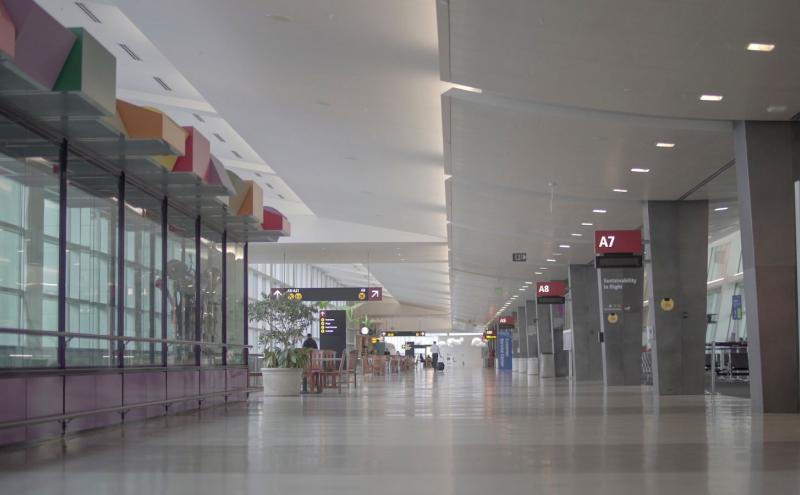
On March 27, the President signed into law the Coronavirus Aid, Relief, and Economic Security (CARES) Act. The CARES Act is a $2 trillion relief package designed to mitigate the impacts of the COVID-19 pandemic. The legislation includes direct payments to individual Americans, an expansion in unemployment insurance, aid for distressed industries, an additional infusion of funding for the health care sector, and additional assistance for businesses and state and local governments.
Ports and related businesses support jobs and economic activity in our region. Seattle-Tacoma International Airport (SEA) is one of the largest job sites in King County, supporting more than 19,000 jobs directly in 2017, and indirectly supporting more than 151,400 jobs throughout Washington.The Port’s maritime industries directly support more than 30,000 jobs. Port operations provide several hundreds millions of dollars in tax revenue to the state.
Businesses experienced a massive decline in activity and revenue when our community began social distancing to prevent the spread of coronavirus. These federal relief packages help businesses and individuals care for their workers and families during a crisis and prepare to thrive in an economic recovery.
The Port of Seattle advocated for federal relief to ensure that our airport and seaport facilities can continue operating and to help the workers and businesses that support the port’s passenger, cargo, and tourism missions to weather the crisis. On April 1, the Port of Seattle Commission will convene a special meeting to consider its own relief packages to supplement support from the federal, state, and local governments.
Highlights of the legislation’s benefits for the port community are below.
Support for businesses and workers in port-related sectors
Here’s how the workers and businesses in port-related sectors will benefit from the general relief provisions in the bill.
For small businesses and their workforce, the relief package provides $377 billion in relief. This includes a new $350 billion “Paycheck Protection Program” within the Small Business Administration’s existing 7(a) loan program. The new program provides eight weeks of cashflow assistance through 100 percent federally guaranteed loans to small employers who maintain their payroll during this emergency. If the employer maintains its payroll, the portion of the loan used for covered payroll costs, interest on mortgage obligations, rent, and utilities will be forgiven. This will be the main relief option for many of the small businesses that depend upon a thriving port for revenue.
For individual workers, the CARES Act includes a number of new benefits, including:
- A significant expansion of both the length and amount of unemployment insurance (UI): The expansion of UI includes gig workers, independent contractors, and individuals who are self-employed. The bill provides for a $600 increase per week on top of regular UI benefits that’s available for four months.
- Direct payments to individuals with incomes up to $75,000 ($150,000 for couples) with $1,200 for each adult ($2,400 for couples), and $500 for each child. The rebate amount is reduced by $5 for each $100 that a taxpayer’s income exceeds the $75,000 phase-out threshold.
- Paid Sick/Family Leave: While not included in the CARES Act, it is worth noting the previous relief package provided workers two weeks of paid sick leave and 12 weeks of family leave.
The port intends to track our stakeholders’ experience with the programs and help address their challenges in subsequent relief packages.
Support for maintaining Port operations
The port also advocated to include provisions that will help sustain our own organization during the crisis. Chief among these are $10 billion in direct funding for airports and $454 billion in general relief for businesses and governments that the port should be able to access if necessary. These tools will help the Port maintain operations at our facilities, safeguard our own direct workforce, and help ensure the continuity of our capital projects, which support thousands of local construction jobs.
Relief for airlines
The decline in travel caused by the global pandemic has reduced the number of people departing from Seattle-Tacoma International Airport by as much as 85-90 percent. This massive decrease poses a significant risk to the regional economy given that more than 19,000 jobs depend on air travel through SEA Airport. The CARES Act will provide a bridge to the economic recovery for the airlines through a total of $58 billion in loans and grants. Of that amount, $29 billion would go toward loans and loan guarantees and another $29 billion is for air carriers to provide financial assistance for airline workers.
Future legislation
The CARES Act was the third relief package Congress has passed in the month of March. The focus of these bills has been on mitigating the immediate impacts of the epidemic. Future legislation is likely to provide further economic assistance to distressed sectors of the American economy, as well as national investment to help spur longer-term recovery, including infrastructure investment. In the weeks ahead, the port will continue our advocacy to shape the economic stimulus legislation in a way that supports the port and our community.










